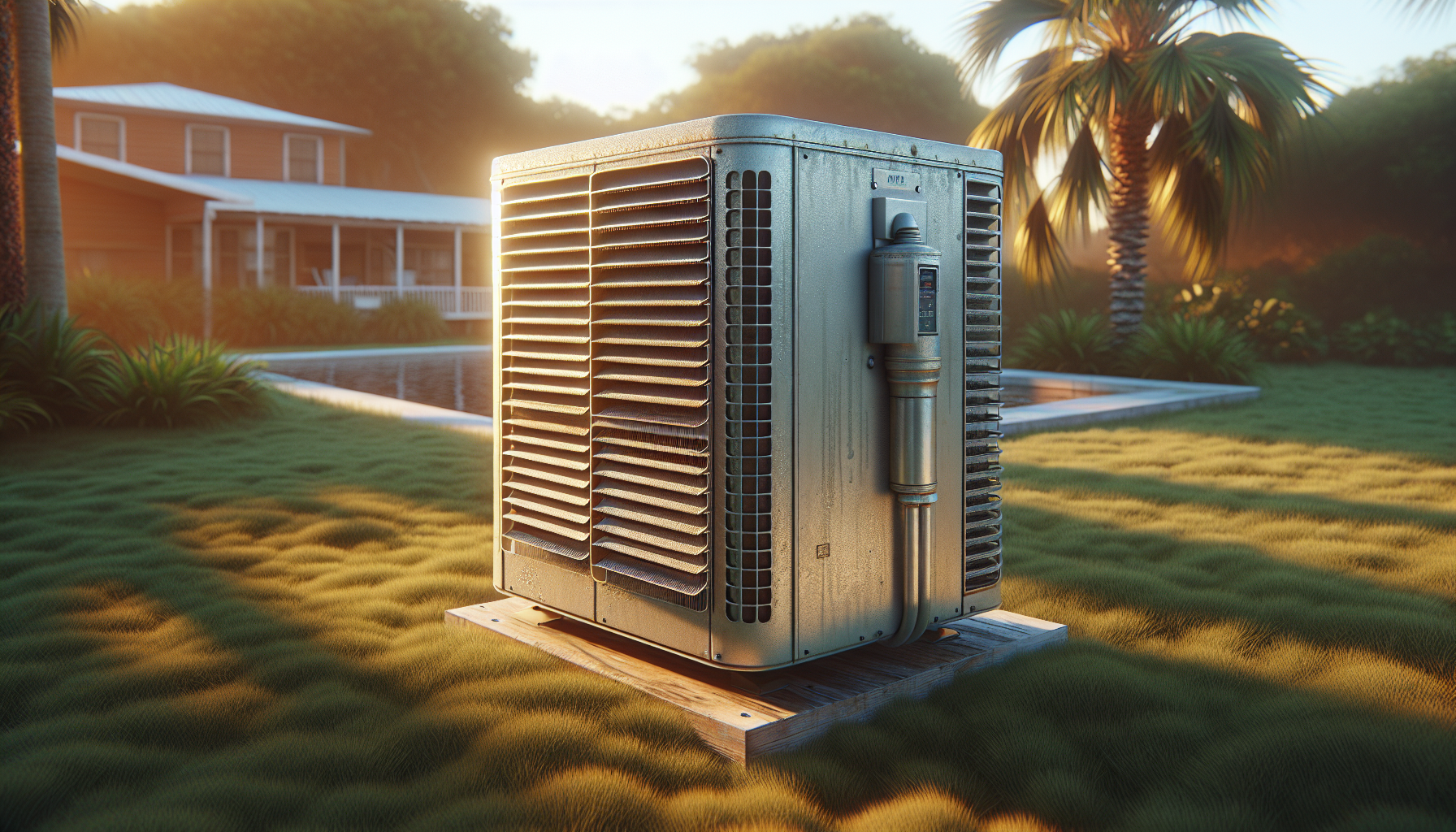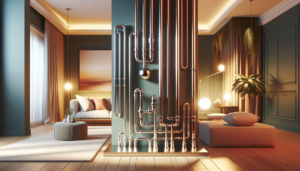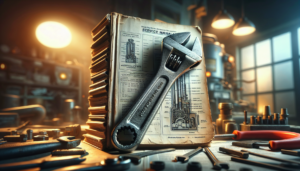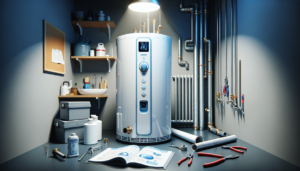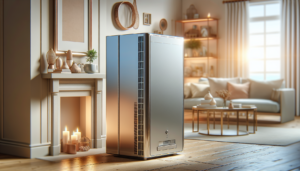? Do you want clear steps to keep your evaporative cooler working well near Molino, FL?
Table of Contents
ToggleEvaporative Cooler Maintenance Near Molino, FL
You will read simple steps you can use to care for your cooler. You will also learn when to check parts and when to call a pro.
What is an evaporative cooler?
An evaporative cooler uses water to cool the air. The unit pulls warm air through wet pads and pushes cool air into your home.
How does it work?
Air moves through wet pads and water evaporates from the pads. The evaporation lowers the air temperature and the fan moves the cooled air into your rooms.
Why use one near Molino, FL?
Molino sits in a warm and humid part of Florida. You will save energy using a cooler where the air is dry at times and where the unit fits your home layout.
How a cooler compares to air conditioning
A cooler uses water instead of heavy chemicals to cool your air. You will find coolers use less electricity than full air conditioners in some situations.
Main parts of an evaporative cooler
You will need to know the key parts to keep the unit working. The table below shows each part and what it does.
| Part | What it does |
|---|---|
| Fan | Moves air through the pads and into your home. |
| Pump | Moves water from the reservoir to the pads. |
| Pads | Hold water so air can cool when it passes through. |
| Water reservoir | Stores water for the pump and pads. |
| Float valve | Stops the reservoir from overfilling. |
| Motor | Powers the fan and sometimes the pump. |
| Belts | Connect the motor to moving parts on some models. |
| Drain valve | Lets you empty the reservoir for cleaning. |
Basic safety rules
You must cut power before you touch the unit. You must never work on electrical parts with wet hands.
You should also shut off the water supply before you unscrew the float valve. You should wear gloves and eye protection for some tasks.
Tools you will need
You will use basic tools for most tasks. You will need a screwdriver, pliers, a bucket, a hose, and a soft brush.
You may also need replacement pads, a small pump kit, and light machine oil. You will buy parts at a hardware store or from your service company.
Monthly maintenance checklist
You should check your cooler every month in warm months. You should do the small tasks below to keep the unit clean and ready.
| Task | What to do | Why |
|---|---|---|
| Check pads | Look for rips, holes, and hard spots. | Pads that fail will let warm air pass through. |
| Clean the reservoir | Drain and wipe the tank if it has slime. | Slime will breed bacteria and cause odor. |
| Check pump | Turn on the unit and watch water flow over pads. | The pads must stay wet to cool the air. |
| Inspect fan | Look for bent blades or debris. | Debris will lower airflow and stress the motor. |
| Tighten screws | Check screws and bolts and tighten if loose. | Loose parts make noise and can break. |
You should write the date of each check on a sticker or in a notebook. You will use the note to see if parts wear faster over time.
Seasonal maintenance: Start-up in spring
You should ready the cooler before warm days start. You should follow a short list to make sure the unit works well.
Turn the unit on and test the pump and fan. Check the pads and replace any that look worn or thin.
Open the float valve and check for leaks around valves and hoses. Clean the outside of the unit and remove leaves and nests from vents.
Seasonal maintenance: Shut-down for winter
You should drain the unit in late fall to stop weather damage. You should clean the pads and dry the reservoir to stop mold.
Close the water supply and drain any remaining water from the reservoir. You should store spare pads in a dry place.
If you will not use the cooler for many months, you should cover the unit with a breathable cover. The cover will keep dust out and let air move.
Replacing pads
You should replace pads when they sag or fall apart. You should also swap pads at least once per season if you use the unit a lot.
Remove old pads and clean the support frame before you put in new pads. You should check the pad fit so air must pass through the pad, not around it.
Water quality and scale
You will see white scale if your water has minerals. You should clean scale from the water reservoir and pump.
You can use a soft vinegar rinse to break down scale. You must rinse well so no vinegar stays in the unit.
Pump care and pump noise
You will hear the pump running when the unit runs. If the pump is loud or does not pump, you should check for clogs or worn seals.
You should clean the pump inlet and check the impeller for debris. If the pump still fails, you should buy a new pump or call a pro.
Fan and motor care
You should check motor mounts and motor bolts. You should listen for strange sounds that may mean a worn bearing.
You may need to oil the motor if the manual allows it. Some motors are sealed and do not need oil.
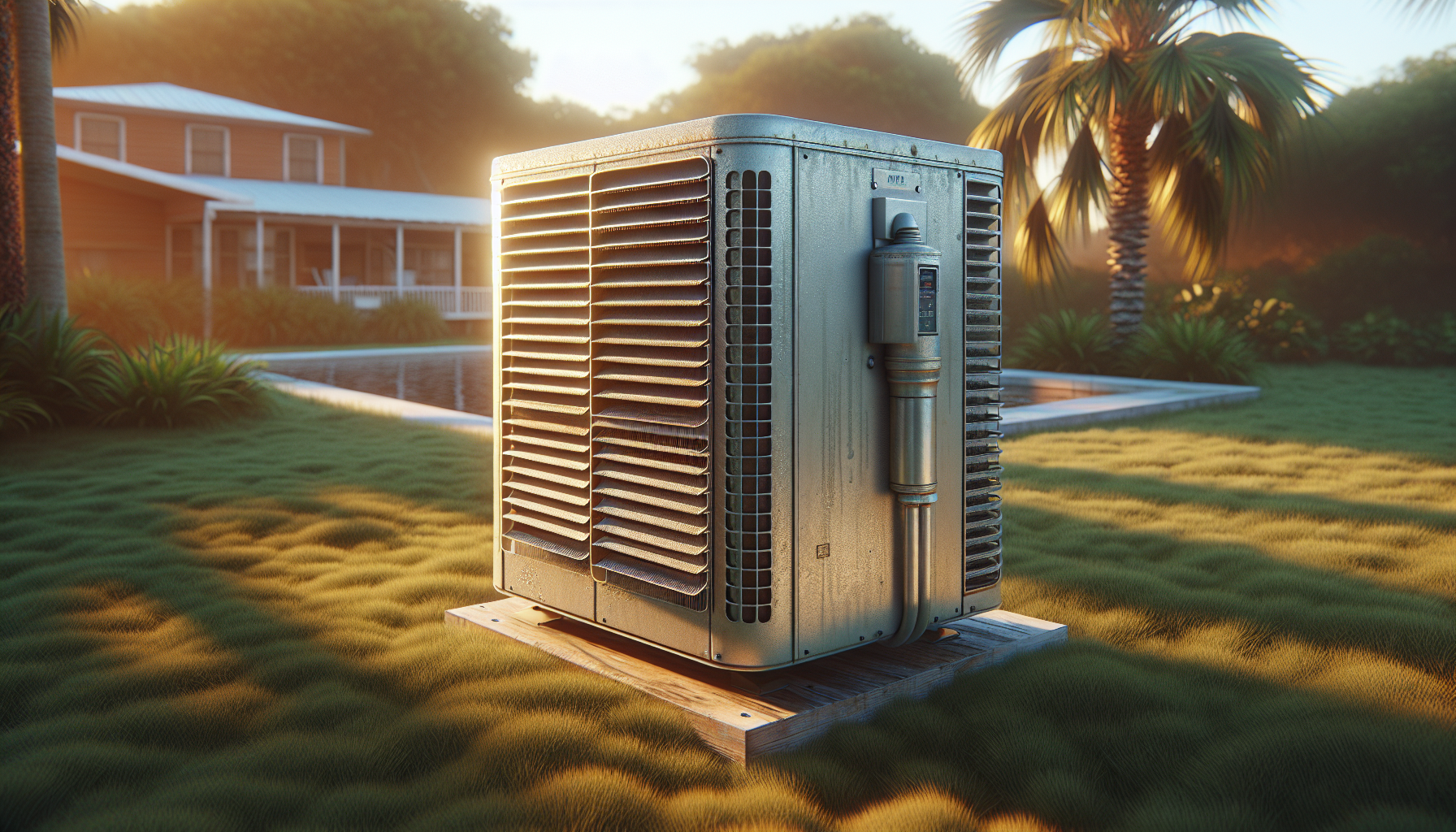
Belt inspection and replacement
Some units use belts to drive the fan. You should check belts for cracks or stretch.
Replace belts that show wear. You should use the correct belt size for your unit.
Electrical checks
You will check wires for wear and loose connections. You should look for burned or melted insulation.
If you find damage, you should call a trained technician. You must not work on live wires unless you know how and have safe tools.
Mold and odor control
You will stop bad smells by cleaning the pads and reservoir. You should also change water often and run the unit with fresh water.
If the smell persists, you should deep clean the unit and consider a mild sanitizer safe for coolers. You should run the unit with the fan only for a short time to dry pads after use.
Water leaks and drip problems
You will find leaks at hoses, valves, or the reservoir. You should tighten clamps and check the float valve.
If leaks come from cracks in the reservoir, you should replace the damaged tank or the whole unit. Small cracks can leak more over time.
Low airflow and weak cooling
You will see low airflow if pads are dry or clogged. You should check fan speed and motor power first.
Replace pads, clean the fan blades, and check for blocked ducts. You should also make sure outdoor vents are clear of obstructions.
Strange noises and vibration
You will hear rattle, buzz, or thump if parts are loose. You should tighten fasteners and check the fan for bent blades.
If bearings in the motor fail, you will need a motor or bearing replacement. Loud vibration can damage the unit over time.
Common parts that wear out
You will often replace pads, pumps, belts, and float valves. Motors can also fail after many years.
List the typical life span for parts in the table below.
| Part | Typical lifespan |
|---|---|
| Pads | 1 to 3 seasons |
| Pump | 2 to 7 years |
| Belts | 1 to 5 years |
| Float valve | 2 to 10 years |
| Motor | 5 to 15 years |
How often you should call a pro
You should call a pro when you face complex electrical issues. You should also call when the motor or pump needs replacement and you do not want to do the work.
A pro can also test the unit for leaks and sealing issues. If the unit sits on a roof or in a hard-to-reach place, you should hire a pro for safety.
Why choose KadeCo Inc.
You should call KadeCo Inc. for clear help with your cooler. KadeCo has a record of service and fair prices.
KadeCo started in 1997 after the owner, Kade Youmans, earned a universal tech certificate. Kade worked for twenty years for other businesses before he began his own company.
KadeCo aims to give honest work and fair prices. KadeCo will not sell you services you do not need.
KadeCo offers free quotes on all jobs. You should call them for an honest estimate.
KadeCo Inc
209 Brandywine Rd
Pensacola, FL 32507
(850) 516-7552
You should call that number if you need help you cannot handle. They will look at your unit and tell you what it needs.
How KadeCo works with you
KadeCo will inspect your unit and list what you need. They will tell you which items need repair now and which can wait.
If KadeCo cannot do the job, they will tell you and suggest another company. You should expect honest answers and a written quote.
Local climate tips for Molino, FL
You will see warm days and humid days in Molino. You should run your cooler more on dry days and use air conditioning on very humid days.
You will find that pads work better when water is clean and the unit has good airflow. You should check the unit after heavy storms or wind.
Water use and conservation
You should keep water use low by using the right pad thickness. You can also run the unit on lower fan speeds at night.
You should fix leaks fast and adjust the float valve to stop overfill. Small fixes will save water and money.
Cost guide for maintenance and repairs
You should expect low costs for simple tasks and higher costs for part replacement. You will pay less if you do monthly checks and catch problems early.
Typical prices you may see:
- Pad replacement: low to moderate cost depending on pad size.
- Pump replacement: moderate cost.
- Motor replacement: higher cost.
- Full unit replacement: highest cost.
You should ask KadeCo for a price estimate for parts and labor. They will give a free quote.
How to test a new pad
You should fit the new pad securely and run the pump for a few minutes. You should feel cool air after the pad wets.
If air stays warm, you should check for air leaks around the pad or pad gaps. You should also check that water flows across the full pad.
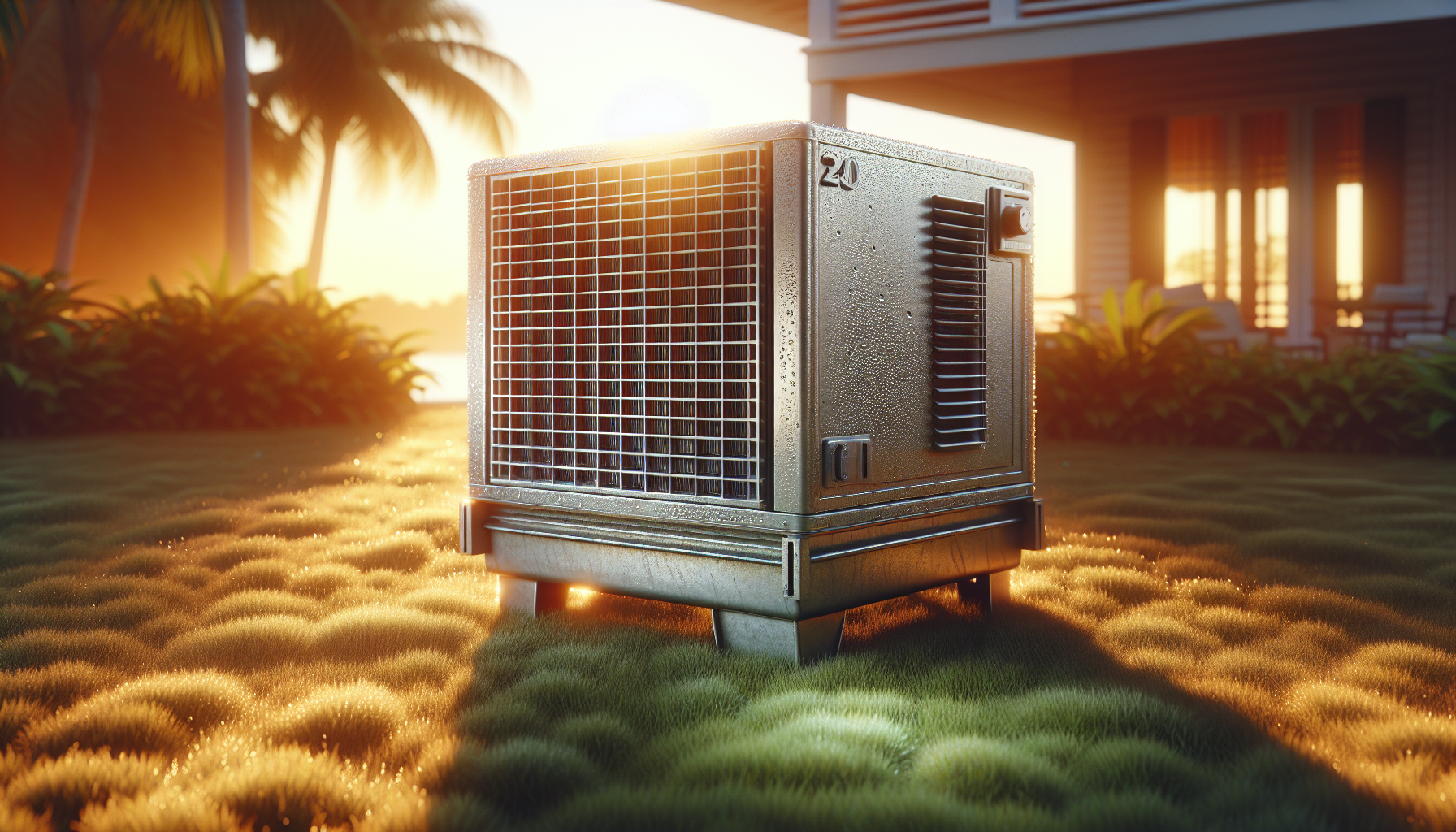
How to clean the reservoir
You should drain the reservoir and scrub the sides with a brush and mild soap. You should rinse well and refill with clean water.
You must empty and dry the reservoir if you will not use the unit for months. Dry surfaces will not grow mold.
How to clean and oil fan bearings
You should first cut the power. You should remove any debris and use light oil on bearings if allowed.
If the motor uses sealed bearings, you must not oil them. You should follow the manual for your unit.
How to clear pump clogs
You should cut power and drain the reservoir. You should remove the pump and clean the inlet screen and impeller.
You should watch for small stones or grit that block flow. You should test the pump after cleaning.
How to judge pad condition
You should look for holes, sagging, and hard spots. You should also smell the pads for musty odor.
You should replace pads that do not hold water or that break apart. New pads will make the unit work better.
How to check the float valve
You should open the fill line and watch the valve operation as the tank fills. You should listen for water that keeps running.
If water runs when the tank is full, you should replace or clean the float valve. You should also check the hose for wear.
How to check for roof or mounting leaks
You should inspect the seal around a rooftop unit. Look for cracks or gaps in the base or flashing.
You should reseal any gaps with a proper sealant. You may need a roof tech for major repairs.
How to prevent insect nests
You should close vents and screens when the unit sits unused. You should also check for wasp or bird nests each season.
You should clear nests before they block the airflow. Nests will slow the unit and strain the fan.
Simple energy tips
You should run the cooler at lower fan settings at night. You should use ceiling fans in rooms to move cool air further.
You should make sure house windows and doors are closed when you run the cooler. Open doors let the cooled air escape and make the unit work harder.
Troubleshooting quick guide
You should first check the power and water supply if the unit does not run. You should then check the pump and fan.
If the unit runs with the fan but not with water, inspect the pump and float valve. If the pump runs but no water comes out, the pump may be clogged.
When to replace the whole unit
You should replace the unit if the motor or reservoir cracks and repairs cost as much as a new unit. You should also replace if the cooler is very old and parts are scarce.
A new unit will often run more quietly and use less power. You should ask KadeCo for help to pick a new unit.
Signs you need a new unit soon
You will see rust in many parts. You will also notice constant repairs and rising power bills.
You will also notice weak cooling even after pad and pump replacement. These signs mean you may save money by replacing the unit.
Parts list and simple prices (range)
You should use this list as a rough guide. Prices vary by model and store.
| Part | Rough price range |
|---|---|
| Pad set | $30 to $150 |
| Pump | $25 to $150 |
| Motor | $100 to $500 |
| Belts | $10 to $40 |
| Float valve | $10 to $50 |
You should ask KadeCo for current part prices and labor rates. They will give a clear quote.
How to read your manual
You should find the model and serial number on the unit label. You should use those numbers to read the manual for service steps.
You should follow the manual for lubrication points and part numbers. The manual will also list safety rules specific to your unit.
Children and coolers: safety tips
You should keep children away from the unit while it runs. You should cover sharp edges and keep small tools and parts out of reach.
You should teach your child that the unit is a machine and not a toy. You should supervise any child who asks about the unit.
A short story about a messy cooler
You will laugh at this little tale. I once found a cooler full of leaves and a small frog that seemed to enjoy the cool breeze more than I did.
The pump gurgled like it was upset. I called a pro because my hands were too clumsy for the job.
How KadeCo helped in that story
KadeCo sent a tech who smiled and worked fast. He cleaned the tank, replaced the pads, and found a better spot for the drainage hose.
The frog was safe and the house was cool again. You will feel that small relief when your cooler runs like new.
Final checklist before hot months
You should follow this short list to be ready for warm days. You should check pads, test the pump, inspects seals, clean the reservoir, and proper oil if needed.
You should call KadeCo if you find anything you cannot fix. They will give a free quote and honest advice.
| Final check item | Done? |
|---|---|
| Pad condition checked | [ ] |
| Pump tested | [ ] |
| Reservoir cleaned | [ ] |
| Motor and fan checked | [ ] |
| Float valve tested | [ ] |
| Electrical wiring checked | [ ] |
Frequently asked questions
Q: How long do pads last?
A: Pads last one to three seasons in most cases. You should replace them when they sag or smell bad.
Q: Can I run my cooler on humid days?
A: You can run it, but it will cool less when the air is very humid. You should use air conditioning if you need stronger cooling.
Q: Is the unit safe on a roof?
A: The unit can sit on a roof if it is well mounted and sealed. You should hire a pro for installation and major repairs.
Q: How often should I change the water?
A: Change water every few weeks in heavy use, or when it looks dirty. Clean the reservoir at the same time.
How to call KadeCo
You should call KadeCo Inc. at (850) 516-7552. You will tell them your address and the unit model if you have it.
You can visit them at 209 Brandywine Rd, Pensacola, FL 32507. You should ask for a free quote and clear steps for repair.
Closing notes
You should check your evaporative cooler often. You will save money and keep your home comfortable if you do small tasks each month.
If you ever feel unsure, you should call KadeCo Inc. They will help you with honest advice and fair prices.
No related posts.


